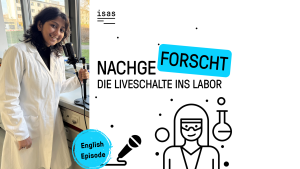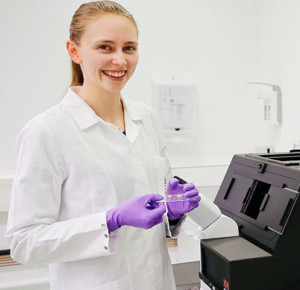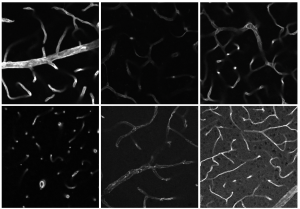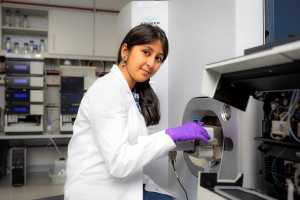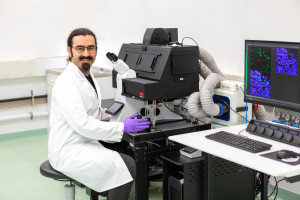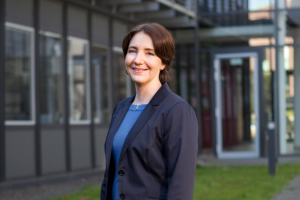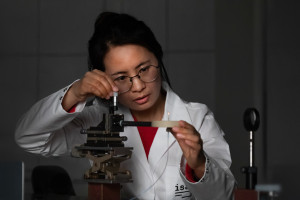Dortmund, 13th October 2021
Changes in demographics are a major challenge to healthcare systems worldwide. As we age, the risk of many health conditions increases, including one of the leading causes of death worldwide, according to the World Health Organisation: cardiovascular disease.
If the finely tuned interaction of the cells in the vascular system is disturbed, this can promote inflammation and blood clots (thromboses). Since the end of 2019, the European-funded collaborative project ‘TICARDIO’ (Thrombo-inflammation in cardiovascular disease) has been investigating these two processes, which were previously studied independently of each other, together for the first time under the term ‘thrombo-inflammation’. The approach taken in this project focuses on the key interactions between the vascular wall and the blood, which play a crucial role in pathological processes in cardiovascular diseases. In the long term, the researchers hope to find new targets for pharmaceutical substances and specific diagnostic markers. Under the direction of Dr Albert Sickmann and the mentorship of Dr Fiorella Solari, ISAS is supporting the research of three female doctoral students for three years with the Disease Mechanisms and Targets research programme.
Understanding platelet regulation in thrombosis
In healthy vessels, endothelial cells produce substances that are involved in the regulation of blood pressure and blood flow. In order to better understand these processes and their role in the development of thrombosis, Pengyu Zhang is working at ISAS on the proteomic investigation of human blood platelets, the thrombocytes. “I focus on the endothelial-derived inhibitory and activating pathways of platelets in thrombosis,” Zhang explains. She aims to develop a phosphor-targeted mass spectrometry (MS)-based assay to quantify key mediators of these pathways, such as the tyrosine-protein kinase SYK. In 2020, she was already able to detect the total SYK protein and three different phosphorylated sites. Optimised purification of the kinase for mass spectrometric analysis should further improve the work flow in future. Another goal of the scientist is to study the different variants of phosphorylation sites using ion-mobility spectrometry.
Development of a vessel-on-a-chip model
The second TICARDIO project in which ISAS is participating is dedicated to the development of an inflammatory vessel-on-a-chip model. The project aims to shed light on how endothelial cells affect thrombus formation and clotting. The scientists at the Cardiovascular Research Institute Maastricht (CARIM) at Maastricht University assume that the mutual reinforcement of dysfunctional platelets and endothelial cells contributes to thrombo-inflammatory diseases. In 2020, they were able to establish a reproducible model that facilitates the study of thrombus formation and clotting in the blood in the presence of endothelial cells. The researchers were able to mimic acute inflammatory situations and examine them using multicolour confocal microscopy. In future, they hope to have success in mild in-flammatory settings such as atherosclerosis. To this end, they wish not only to simulate chronic vascular diseases, but also subsequently detect differences at the proteome level using liquid chromatography-mass spectrometry.
(Cheyenne Peters)
This project has received funding from the European Union's Horizon 2020 research and innovation programme under the Marie Skłodowska-Curie grant agreement number 813409.
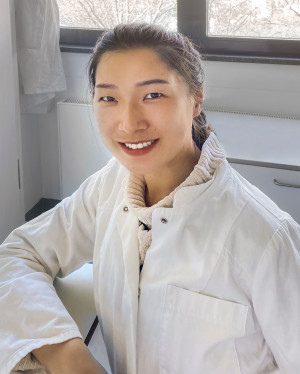
Pengyu Zhang is participating in ‘TICARDIO’ for her PhD. She is working on test methods that can be used to quantify the tyrosine-protein kinase SYK for ISAS.
© ISAS
What is TICARDIO?
TICARDIO is a European funded “Innovative Training Network” (ITN) for the collaborative training of doctoral students. The ITN offers 15 doctoral candidates in the sciences the opportunity to develop scientific and general competences within an international network. The aim of the EJD (European Joint Doctorate) variant is the awarding of a joint doctoral degree and multidisciplinary and inter-sectoral cooperation in doctoral training among the participating institutions. The network is coordinated by the Centre for Thrombosis and Haemostasis (CTH) at the University Medical Centre Mainz; in addition to ISAS, the academic partners include the Cardiovascular Research Institute Maastricht (CARIM) in the Netherlands, and the Aix-Marseille University in France. The European Commission is funding the ITN as a Marie Skłodowska-Curie action with four million euros over 48 months.
